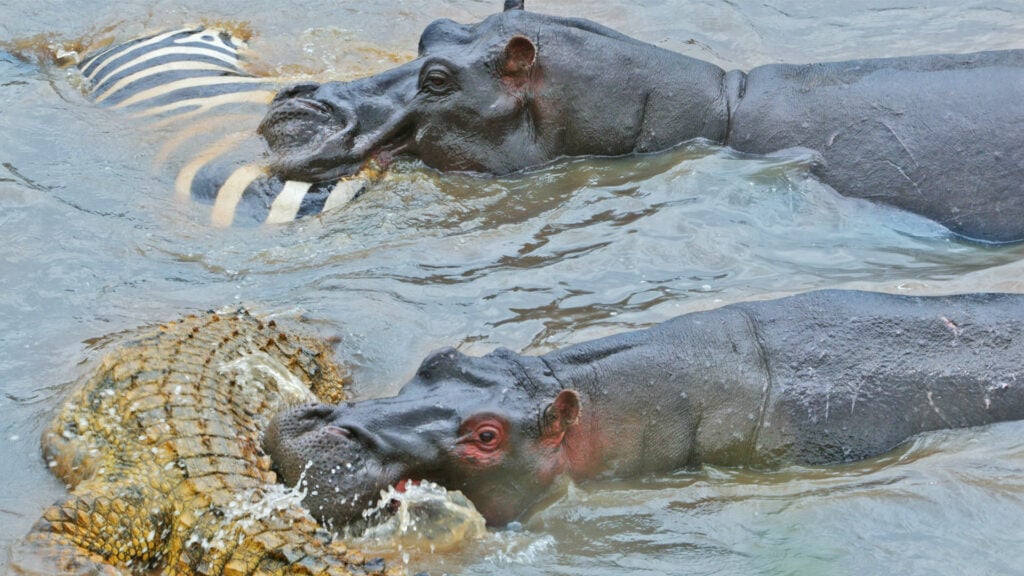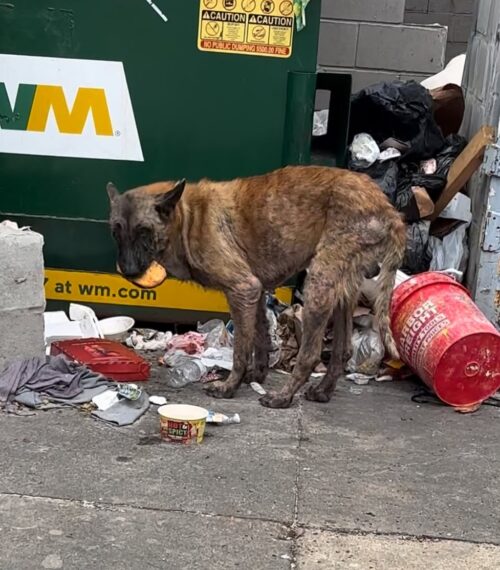
Regular contributor Johan van Zyl submitted this video to Latest Sightings. He filmed the interesting behaviour in Kenya’s Masai Mara National Reserve.
Dangerous zebra crossing
During the Great Wildebeest Migration of East Africa, great herds of wildebeest, zebra and other antelopes must cross flooded rivers. Lying in wait are hundreds of crocodiles, eager to make the most of this seasonal abundance of prey.
Johan and his companions were watching one such croc feeding on a zebra when something strange happened. Two hippos, thought to be juveniles, approached to investigate, and Johan started filming.

In the image above, we see that the hippo in the foreground is approaching the feeding crocodile. While the two species share the water, an uneasy truce exists between them.
Croc sent packing
To our surprise, the young hippo then opens its mouth and bites the croc on the hind leg.
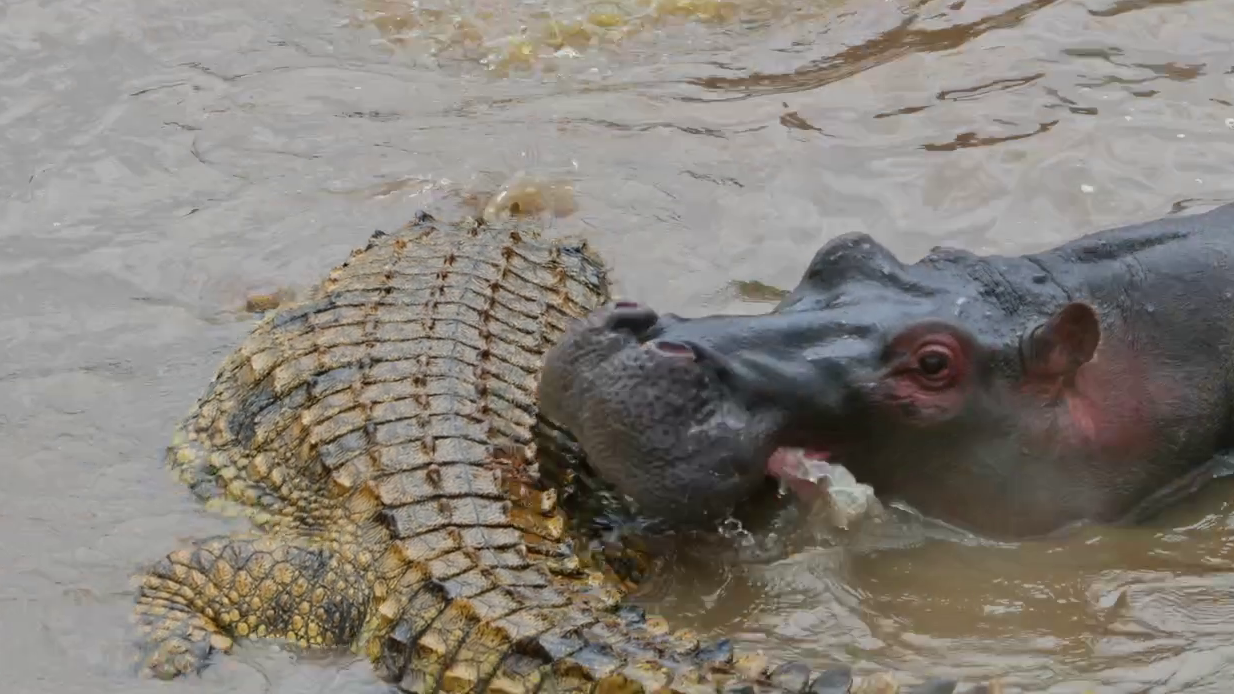
Considering that hippos have one of the strongest bite forces in the animal kingdom, this is no small thing. Immediately, the crocodile thrashes to escape the hippo’s unprovoked attack.

If you look closely at the hippo’s teeth in the image above, you’ll notice that it lacks the large canines of an adult hippo.
Meat-eating hippo?
As the croc moves away, we notice something else that’s unusual going on. The second hippo appears to be chewing on the zebra carcass.

As the hippo chews on the carcass, blood leaks into the water, suggesting that the hippo is in fact feeding.
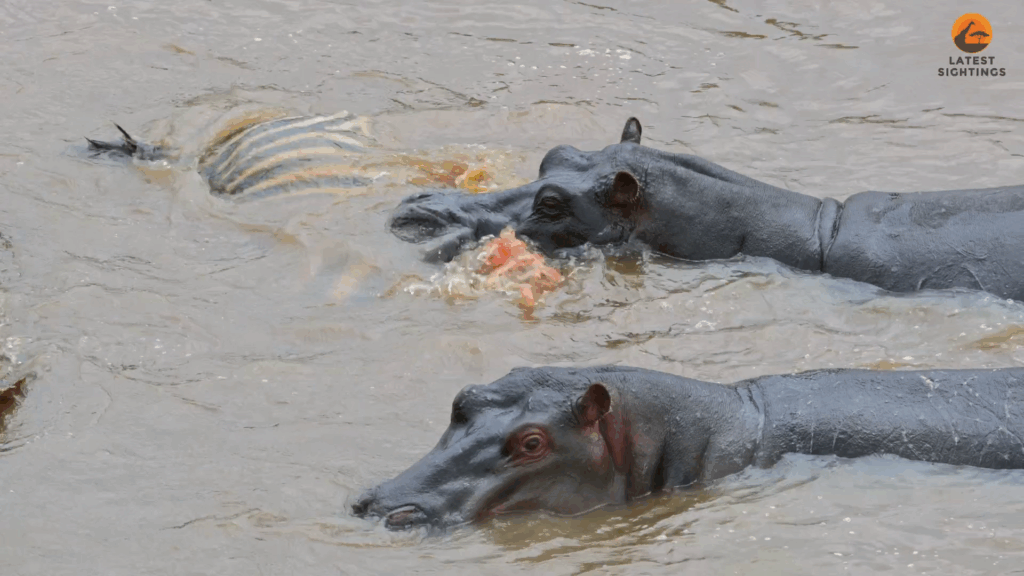
While hippos primarily eat plants, researchers have well-documented this behaviour. They call it “facultative carnivory” and believe it occurs due to nutrient deficiencies, dietary stress, or the chance discovery of a carcass.
Hippo digestive systems process plant matter well, but their efficiency in dealing with meat is unknown. So it is unclear whether they actually derive much benefit from the practice.
Another bite at the prize
A short while later, the croc returned, hoping to resume feeding.
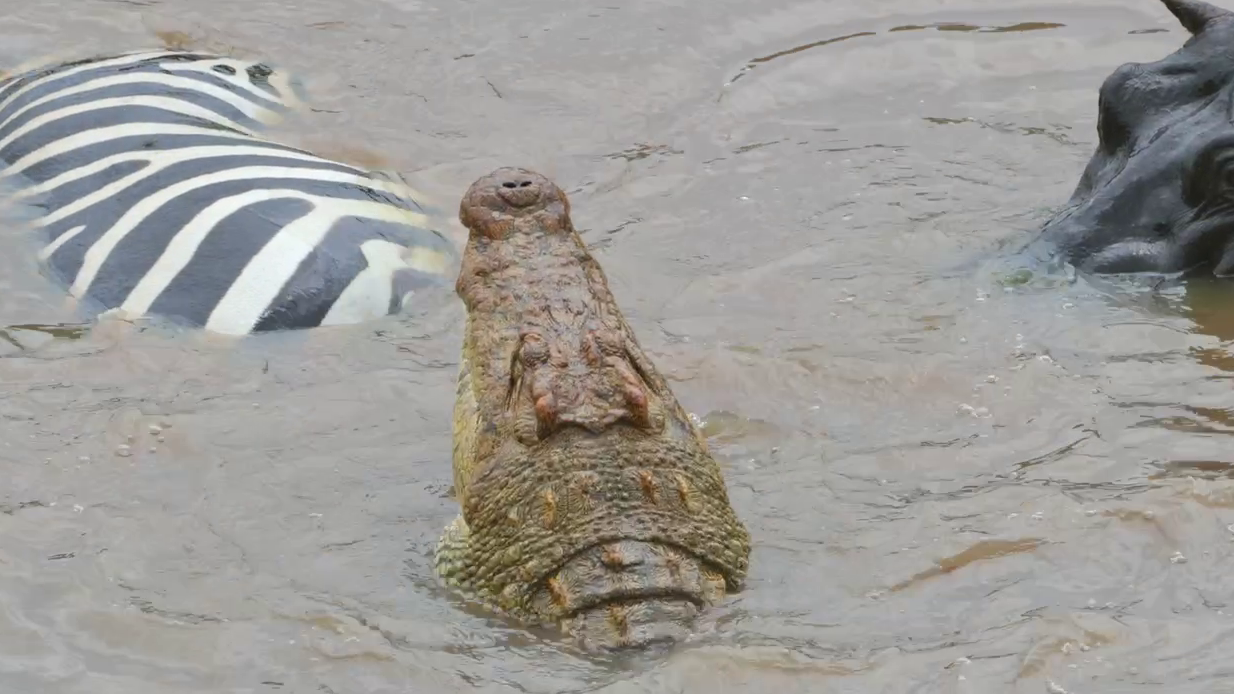
And once again, the nearer hippo advanced to drive it off. In this instance, the behaviour seems to be one motivated by territoriality.
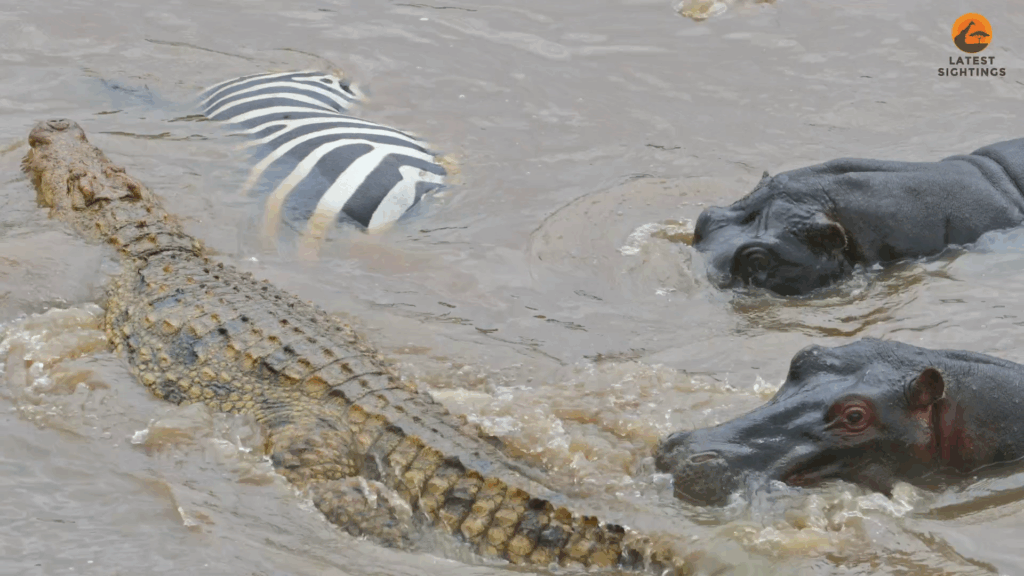
Hippos are, by nature, extremely territorial, showing little tolerance for other species that venture too close. Reinforcing the case, the hippo forces away another crocodile that arrives to feed.
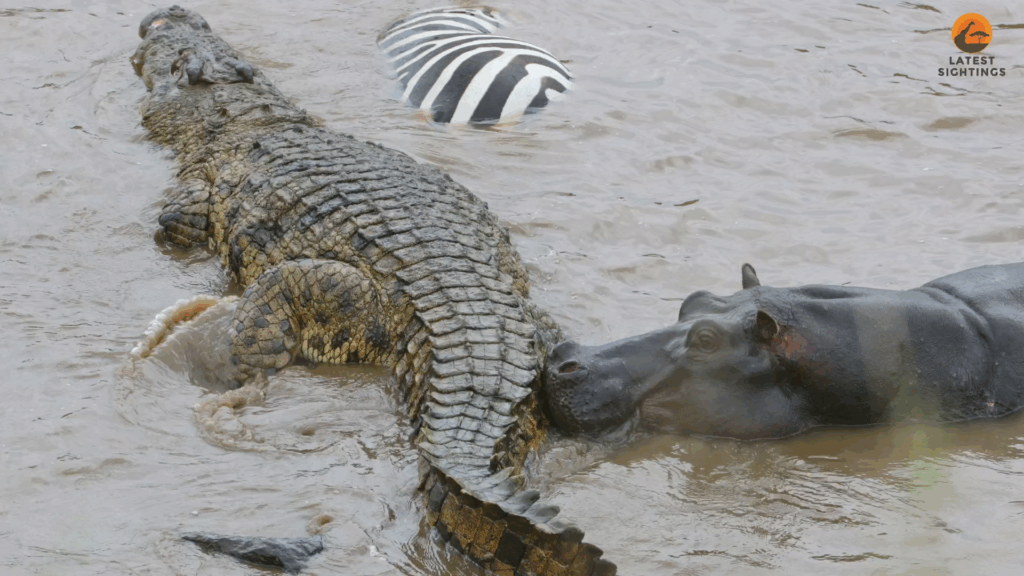
Dinner for two
Get our Best Sightings as they Come in
It is only when this crocodile moves away that the second hippo begins to show an interest in the carcass.
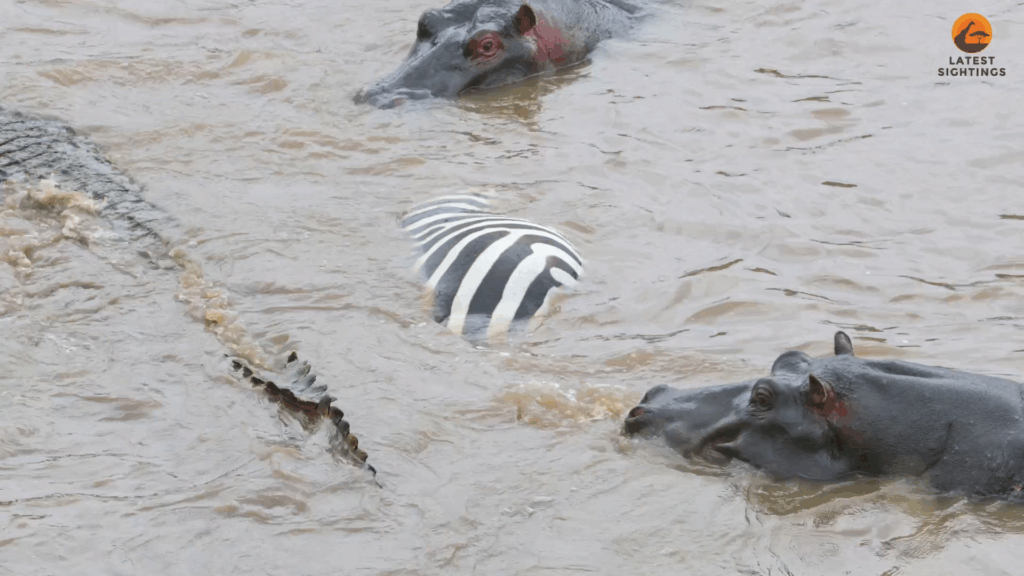
Around this time, we hear Johan saying that the hippo is just biting, and not necessarily eating the zebra flesh. As the muddy water obscures our view, it is hard to tell what is actually happening beneath the surface.
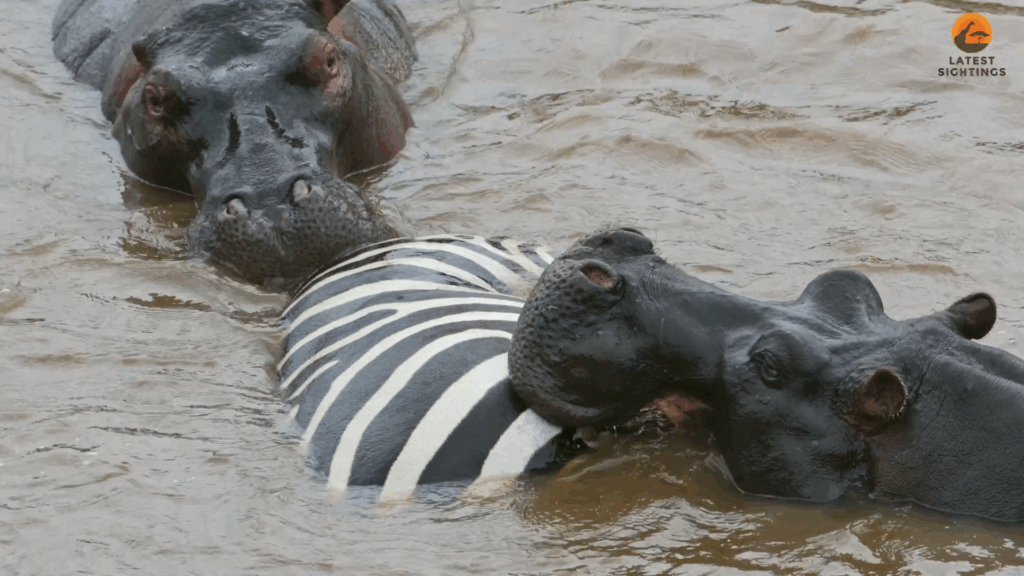
Hippo teeth are not designed to feed on flesh. However, we can assume that small pieces of flesh are being dislodged and swallowed in the process of chewing on the carcass.
Typical hippo diet
As mentioned, hippos are herbivores. Their typical diet consists of grass, occasionally supplemented with fruits, leaves and water plants.
To avoid the harsh effects of the sun on their sensitive skin, hippos do most of their feeding at night.











































































































